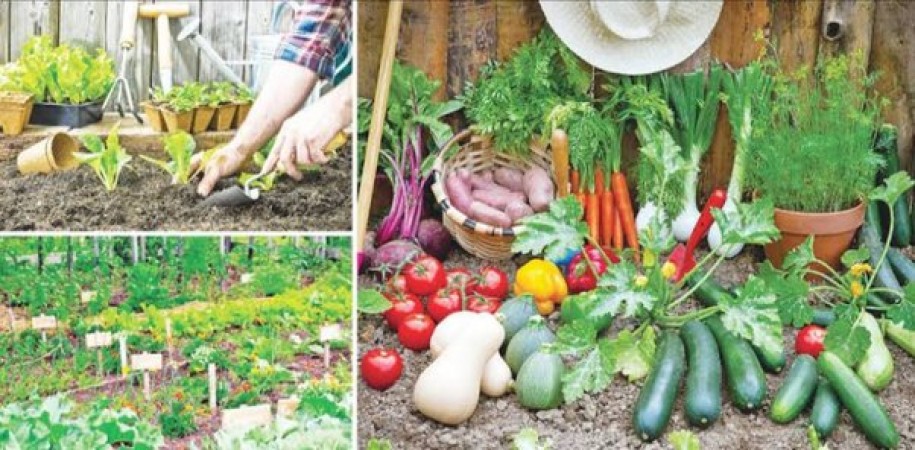
Urban agriculture has been gaining momentum as a sustainable solution to food insecurity and environmental challenges. One innovative approach is roof gardening, where individuals cultivate crops on the rooftops of their houses. Beyond its environmental benefits, roof gardening has emerged as a lucrative opportunity for urban dwellers seeking additional income streams.
The Rise of Urban Agriculture
Urbanization has led to a decrease in arable land, making traditional farming practices increasingly challenging. As a result, urban agriculture has gained traction as a means to produce food locally, reduce transportation emissions, and foster community engagement. The rise of urban agriculture reflects a growing awareness of the need for sustainable food systems in densely populated areas.
Challenges of Traditional Farming
Traditional farming faces numerous challenges, including limited space, soil degradation, and reliance on synthetic inputs. These factors contribute to lower yields and higher production costs, diminishing farmers' profitability. In urban areas, competition for land further exacerbates these challenges, making it difficult for traditional farmers to sustain their livelihoods.
The Emergence of Roof Gardening
In response to urban challenges, roof gardening has emerged as a viable solution. By utilizing underutilized rooftop space, individuals can cultivate a variety of crops without the need for extensive land or soil. Roof gardening offers a sustainable alternative to traditional farming methods, addressing issues such as land scarcity and soil degradation while promoting local food production.
Advantages of Roof Gardening
Roof gardening offers several advantages over traditional farming methods:
Optimal Space Utilization
Roof spaces, often neglected, can be transformed into productive gardens, maximizing land use efficiency in densely populated urban areas. By utilizing vertical space, roof gardens allow individuals to grow food without encroaching on valuable land resources.
Reduced Environmental Impact
By growing food locally, roof gardens reduce the carbon footprint associated with transportation and distribution, contributing to a more sustainable food system. Additionally, roof gardens can mitigate the urban heat island effect, reducing energy consumption and improving air quality in cities.
Enhanced Food Security
Urban dwellers can supplement their diets with fresh produce grown on their rooftops, reducing dependence on external food sources and ensuring food security. In times of crisis or supply chain disruptions, roof gardens provide a reliable source of nutritious food for local communities.
Economic Opportunities
Beyond personal consumption, roof gardening presents a lucrative opportunity for individuals to generate additional income through the sale of surplus produce. With proper planning and management, rooftop farms can yield significant profits, providing a sustainable livelihood for urban farmers.
Suitable Vegetables for Roof Gardening
Not all vegetables are well-suited for roof gardening due to space and environmental constraints. However, several crops thrive in container gardens and shallow soil conditions:
Leafy Greens (e.g., Lettuce, Spinach)
Leafy greens are fast-growing and well-suited for rooftop cultivation. They require minimal space and can be harvested multiple times throughout the growing season. Additionally, leafy greens are high in nutrients, making them a valuable addition to urban diets.
Tomatoes
Tomatoes are popular among urban gardeners for their versatility and high market demand. Compact varieties thrive in containers and can yield abundant harvests, providing a profitable crop for rooftop farmers. With proper care and maintenance, tomatoes can be grown successfully on rooftops year-round.
Peppers
Peppers, both sweet and hot varieties, adapt well to container gardening. With their vibrant colors and bold flavors, peppers are sought after in local markets, commanding premium prices. Rooftop farmers can capitalize on this demand by cultivating peppers in their gardens and selling them to eager consumers.
Herbs (e.g., Basil, Parsley)
Herbs are excellent additions to rooftop gardens, offering culinary diversity and medicinal benefits. They require minimal space and can be grown year-round in suitable climates. Additionally, herbs can be dried or preserved for long-term storage, allowing rooftop farmers to extend their selling season and maximize profits.
Income Potential of Roof Gardening
Roof gardening can yield substantial income for urban dwellers willing to invest time and effort into their rooftop farms. Several factors contribute to the income potential:
High Demand for Fresh Produce
Consumers increasingly prioritize fresh, locally grown produce, creating a lucrative market for rooftop gardeners to tap into. By offering high-quality vegetables and herbs, rooftop farmers can attract discerning customers willing to pay premium prices for their products.
Premium Pricing
Locally grown, organic vegetables command premium prices compared to mass-produced counterparts, offering higher profit margins for rooftop farmers. By emphasizing the freshness and quality of their produce, rooftop gardeners can justify higher prices and increase their profitability.
Value-Added Products
Rooftop gardeners can diversify their income streams by offering value-added products such as homemade jams, pickles, or herbal teas. By processing their harvests into artisanal goods, rooftop farmers can differentiate themselves in the market and attract customers seeking unique culinary experiences.
Community Supported Agriculture (CSA)
Participating in CSA programs allows rooftop gardeners to sell directly to consumers, fostering community connections and ensuring a steady income stream throughout the growing season. By establishing relationships with local residents and businesses, rooftop farmers can build a loyal customer base and secure their financial sustainability.
Roof gardening presents a promising avenue for urban dwellers to not only supplement their diets with fresh, locally grown produce but also to generate significant income through the cultivation of high-value crops. By leveraging underutilized rooftop spaces, individuals can contribute to a more sustainable and resilient food system while reaping the financial rewards of their agricultural endeavors. With proper planning, management, and marketing strategies, roof gardening has the potential to transform urban landscapes and empower communities to thrive in an increasingly uncertain world.
Difficulty will increase for Hyundai Creta, new SUV of Jeep is coming to compete
Buy second hand auto rickshaw cheaply, use it in Ola-Uber, you will earn money
If you see red light in the car then understand that there is danger, do this immediately